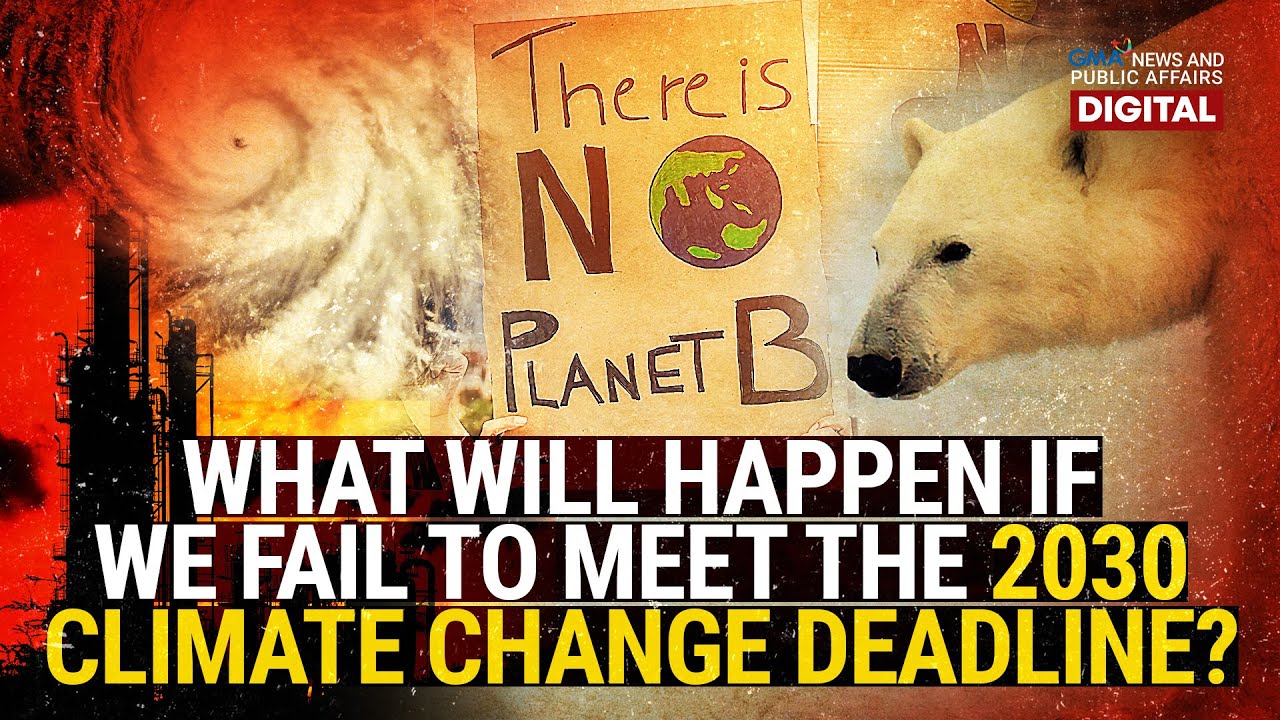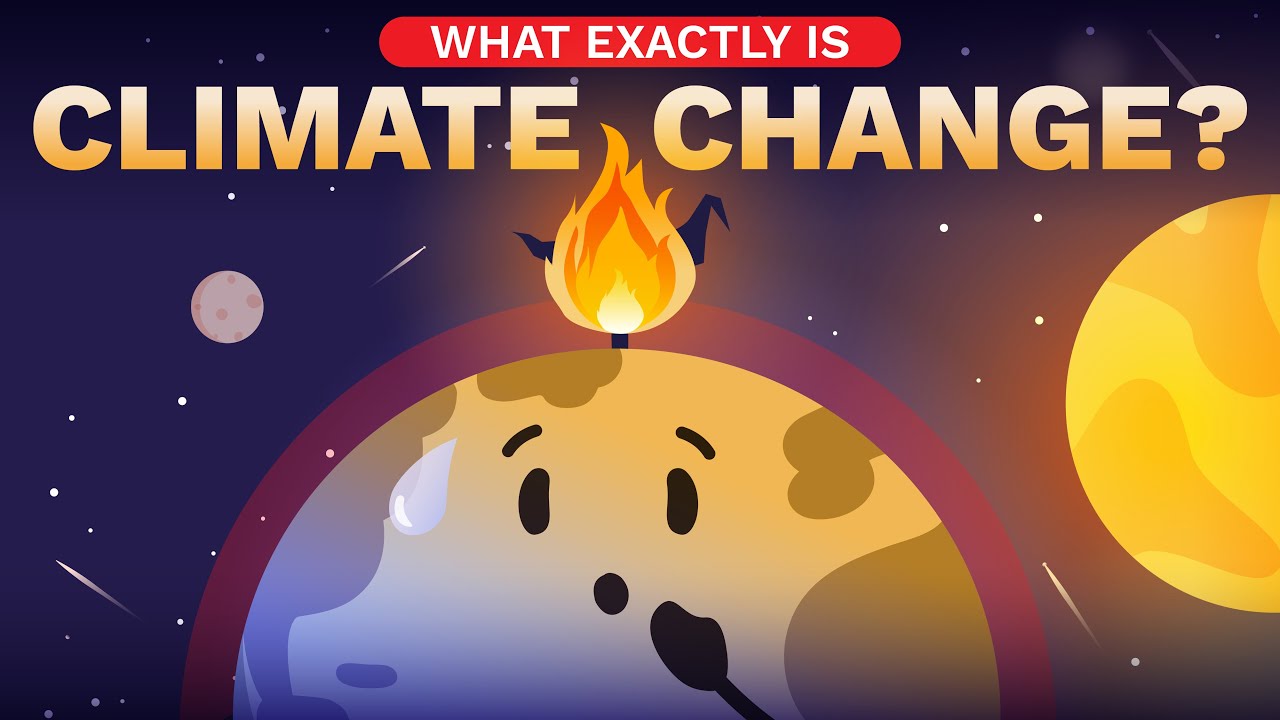AR6 Synthesis Report: Climate Change 2023
Summary
TLDRThe video script highlights the urgent need for global action on climate change, emphasizing the 1.1°C warming above pre-industrial levels. It underscores the IPCC's findings that we have the technology to address this crisis but require faster implementation and international collaboration. The report also points out the financing gap and the disproportionate impact on vulnerable communities. It stresses the critical window for limiting warming to 1.5°C and the escalating risks with each degree increase. The script calls for deep reductions in emissions, climate-resilient development, and ecosystem conservation to secure a sustainable future.
Takeaways
- 🌍 The global temperature has risen 1.1°C above pre-industrial levels due to human activities.
- 🔥 Burning fossil fuels and unsustainable land use are major contributors to global warming.
- 📚 The 2023 IPCC synthesis report provides a comprehensive analysis of human-induced climate change and outlines available solutions.
- 🌱 Implementing and deploying existing technology and knowledge at a faster pace is crucial to address climate change.
- 🤝 There is a need for close collaboration between developed and developing countries to tackle climate change.
- 💸 A significant gap in financing, support, and technology transfer from developed to developing countries still exists.
- 🚨 Limiting global warming to 1.5°C is becoming increasingly difficult as greenhouse gas emissions continue to rise.
- 🌡️ Every increment of warming intensifies the severity of impacts on natural and human systems.
- 🌎 Vulnerable communities, who have historically emitted the least, are at the forefront of climate impacts.
- 🌊 Changes in climate and extremes, such as heatwaves and intense rainfall, are becoming more pronounced and widespread.
- ⏳ The window of opportunity to limit warming to 1.5°C is rapidly closing, and the impacts become more severe with each increment of warming.
Q & A
What is the current global warming level compared to pre-industrial levels?
-Global warming has reached 1.1 degrees Celsius above pre-industrial levels.
What does the 2023 synthesis report by the Intergovernmental Panel on Climate Change (IPCC) indicate?
-The report indicates that the world has the necessary technology and tools to address climate change, but they need to be implemented and deployed faster worldwide.
What is identified as a critical enabler for achieving climate stabilization goals?
-The synthesis report identifies the means of implementation, including financing support and technology transfer from developed to developing countries, as a critical enabler.
What is the significance of limiting global warming to 1.5 degrees Celsius?
-Limiting global warming to 1.5 degrees Celsius is significant as it helps to reduce the severity of impacts across natural and human systems and avoids more pronounced and widespread climate extremes.
How does the window of opportunity to limit warming to 1.5 degrees Celsius look currently?
-The window of opportunity to limit warming to 1.5 degrees Celsius is rapidly closing.
What are the risks associated with increasing global temperatures?
-Increasing global temperatures lead to more pronounced and widespread changes in climate and extremes, such as heatwaves and intense rainfall, presenting risks to people and ecosystems worldwide.
Who are the most vulnerable to the impacts of human-caused climate change?
-Those who have historically emitted the least greenhouse gases are the ones most vulnerable to the impacts of human-caused climate change.
What percentage of the world's population lives in regions highly vulnerable to climate change?
-Almost half of the world's population lives in regions that are highly vulnerable to climate change.
How can deep and rapid reductions in greenhouse gas emissions help limit warming?
-Deep and rapid reductions in greenhouse gas emissions can limit warming to 1.5 or 2 degrees Celsius, with the best estimate of reaching 1.5 degrees being in the early 2030s.
What is the importance of protecting, conserving, and restoring ecosystems in relation to climate change?
-Protecting, conserving, and restoring ecosystems is important for accelerating action on climate change as they can act as valuable carbon stores, helping to limit global warming.
What does the IPCC synthesis report suggest for countries to pursue in terms of climate resilient development?
-The report suggests that countries should pursue climate resilient development, implementing measures to adapt to climate change while reducing or avoiding greenhouse gas emissions, to enhance sustainable development.
Outlines

Dieser Bereich ist nur für Premium-Benutzer verfügbar. Bitte führen Sie ein Upgrade durch, um auf diesen Abschnitt zuzugreifen.
Upgrade durchführenMindmap

Dieser Bereich ist nur für Premium-Benutzer verfügbar. Bitte führen Sie ein Upgrade durch, um auf diesen Abschnitt zuzugreifen.
Upgrade durchführenKeywords

Dieser Bereich ist nur für Premium-Benutzer verfügbar. Bitte führen Sie ein Upgrade durch, um auf diesen Abschnitt zuzugreifen.
Upgrade durchführenHighlights

Dieser Bereich ist nur für Premium-Benutzer verfügbar. Bitte führen Sie ein Upgrade durch, um auf diesen Abschnitt zuzugreifen.
Upgrade durchführenTranscripts

Dieser Bereich ist nur für Premium-Benutzer verfügbar. Bitte führen Sie ein Upgrade durch, um auf diesen Abschnitt zuzugreifen.
Upgrade durchführenWeitere ähnliche Videos ansehen

Islands on the Edge - Part 2

What will happen if we fail to meet the 2030 climate change deadline? | Need to Know

NASIB DUNIA DI UJUNG TANDUK! Beginilah Konsekuensi Nyata dari Perubahan Iklim Global

Climate Change: How does it really work? | ClimateScience #1

🇲🇽 Mexico - Minister for Foreign Affairs Addresses United Nations General Debate, 78th Session

SDG 13: CLIMATE ACTION (Group 13)

In Tearful, Amazing Speech, Philippines Climate Delegate Announces Hunger Strike
5.0 / 5 (0 votes)
